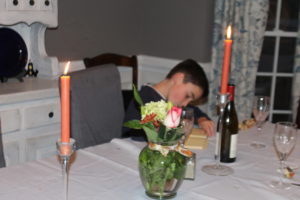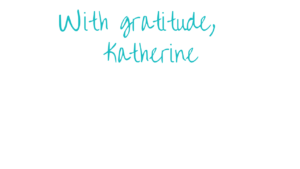Perspective

I have been reflecting on the holiday and the gift of not only gratitude, but also of perspective.
Our family has a tradition we have been participating in since my teenagers were toddlers.
Each Thanksgiving our family “gratitude” book comes out. Whoever happens to be spending the holiday with us is invited to write what they were thankful for the year prior. As you may expect, new items are continuously added, but year after year, much also stays the same. Take my daughter’s list for example:
I found great delight in reading, at age four, her list still looks pretty much the same as it does today at fifteen.
1) Parents
2) Family
3) Chocolate

I love this kid, and admittedly am quite thankful I was a step above chocolate.
It is likely, however that due to a contenious election year, at some dinner tables this holiday, blessings such as chocolate and family were not the main topics of discussion.
In fact, at my very own Thanksgiving celebration, there sat a mix of both red and blue among us.
The last evening together, with the dishes done and the house quiet, I reviewed the lists of gratitude that were written by various family members, and I took note of something interesting.
I noticed that regardless of what side of the aisle you happened to come from; family, love and blessings were high priority for each of us. This commonality gave me new hope that during a time when others seem to be viewing the world with an “us vs. them” mentality, I recognized we are much more the same than different, especially in the things and people we treasure.
How we got to “who” we voted for is individualized for a million reasons. Assuming why is not only unhelpful, but often inaccurate.
So, today I have decided to go a different route.
I am going to take a risk and put something out there.
What if we assumed, that for the most part, whether one is Democrat or Republican, the desire for the ones we love to be well, and the world a place of peace is a great starting point for agreement.
Unique life stories, many of which I know very little about, often lead us to decide on the candidates that we do. If your candidate was not the one I happened to choose, I would like to believe should I have been on your journey, I may have been right there with you, voting as you did. I hope you may even consider the reality of this on your end too.
In fact, who knows, one of the top spots of my list in “the gratitude book” of 2017 could have a new and much hoped for addition if a few got on board and considered implementing this idea as their starting point too.



